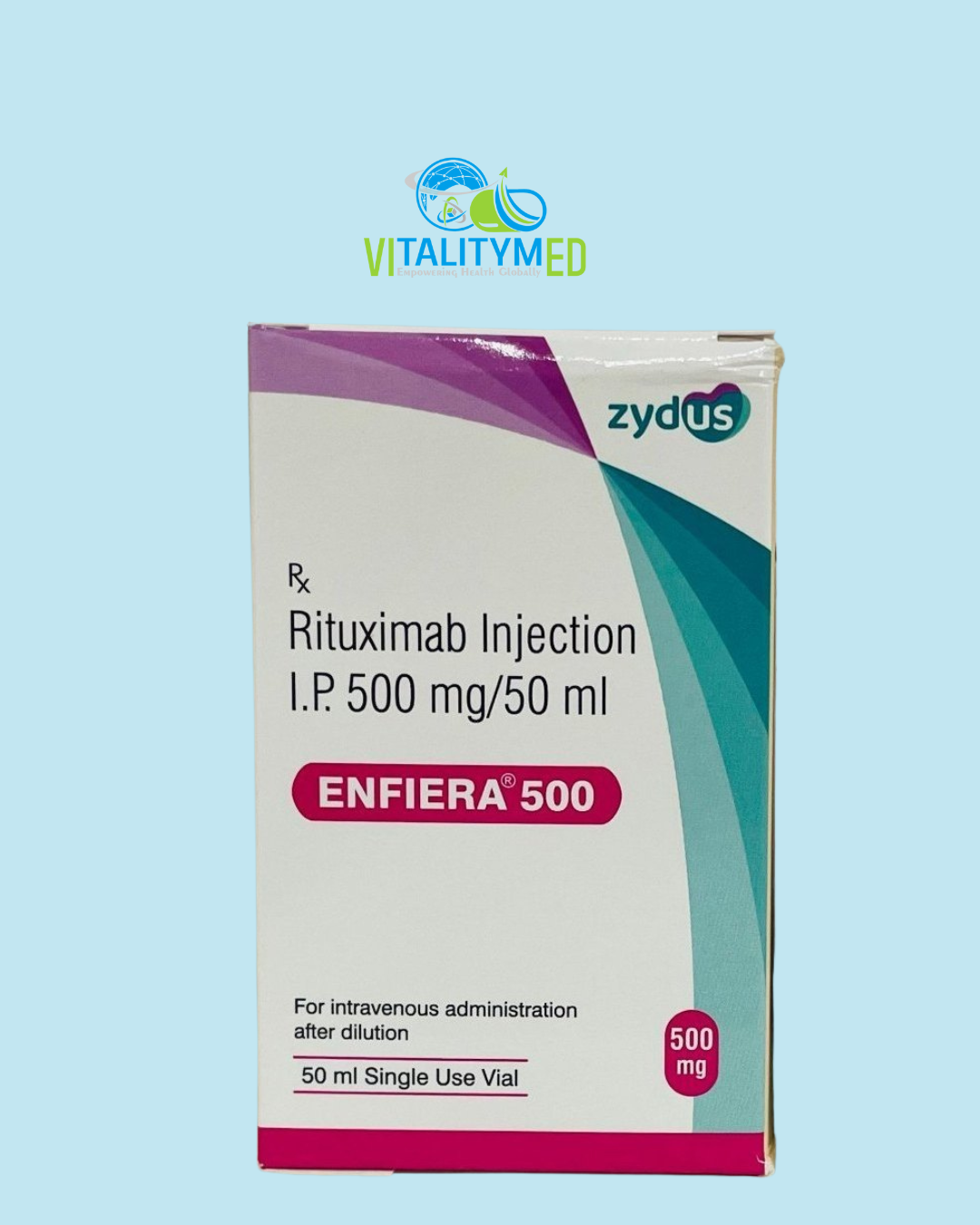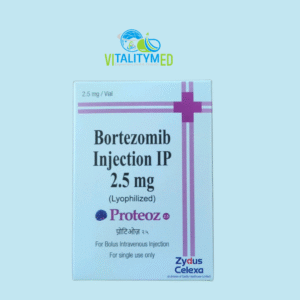Enfiera contains rituximab, a monoclonal antibody that is used to treat certain cancers and autoimmune conditions. It is primarily prescribed for non-Hodgkin’s lymphoma, chronic lymphocytic leukemia, rheumatoid arthritis, and some types of vasculitis. Rituximab has become a standard part of many treatment regimens due to its ability to precisely target specific cells involved in disease processes, offering a tailored approach with fewer side effects compared to traditional chemotherapy alone.
Mechanism of Action
Rituximab works by targeting a protein called CD20 found on the surface of certain white blood cells, specifically B lymphocytes. These B cells can become cancerous in some blood cancers or play a role in autoimmune diseases by attacking the body’s own tissues. When rituximab binds to CD20, it marks these B cells for destruction by the immune system. This reduces the number of abnormal or overactive B cells, helping to control disease progression or calm an overactive immune response.
Uses
Enfiera is used in both oncology and immunology settings. Its main uses include:
-
Non-Hodgkin’s lymphoma: Often combined with chemotherapy as a first-line or relapsed treatment
-
Chronic lymphocytic leukemia: Helps reduce abnormal lymphocyte counts
-
Rheumatoid arthritis: Used with other medications when standard treatment is insufficient
-
Granulomatosis with polyangiitis and microscopic polyangiitis: These are rare autoimmune conditions affecting blood vessels
-
Pemphigus vulgaris: A skin autoimmune disorder for which rituximab can help control severe flare-ups
Adverse Effects
While rituximab is generally well tolerated, some people may experience side effects, particularly during the first infusion. Common reactions include fever, chills, headache, nausea, and rash, especially during or shortly after the infusion. More serious side effects can include infections due to a reduced immune response, including reactivation of hepatitis B in some individuals. Rarely, patients may develop a condition called progressive multifocal leukoencephalopathy, a serious brain infection. Therefore, careful screening and monitoring are essential during treatment.







